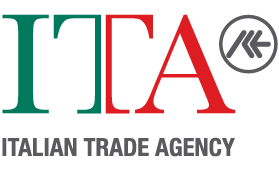Consumer interest in sustainable fashion
An analysis of Google searches
In the last 5 years, no report or research has been published by the most influential consulting or trend analysis companies that have not indicated sustainability as one of the fashion market's primary drivers. One for all, among the 10 drivers that make up McKinsey's "The state of Fashion" and Business of Fashion every year, one was dedicated to sustainability issues in both the 2017 and 2018 editions, they became two in 2019, three in 2020. The themes of COVID-19 dominated the 2021 report, including resilience of supply chains and the distribution system, but 50 references to the word sustainability in 100 pages can be found in the report as if the principle of sustainability is no longer a simple trend, but a pervasive principle that affects all dimensions of the market.
There was also no lack of market surveys, among those published in 2020 we can mention among others: McKinsey - 57% of consumers have changed their behaviour for a more sustainable lifestyle-; Lenzing - 86% of consumers interviewed believe that the purchase of clothes made with sustainable raw materials is an essential factor in their lifestyle; Kpmg - consumers in favour of sustainable fashion are 64% of the interviewees in 5 top cities in the world Hong Kong, London, NYC, Shanghai (the city with the highest percentage) and Tokyo; BCG - 75% of consumers surveyed see sustainability as "important" or "very important".
Another way to measure consumer interest is offered to us by internet search engines: how have searches on the consumer network changed when looking for information to make a purchase? How much did the themes of sustainability enter the research?
Google classifies searches in categories and sub-categories, according to the search context. Those referring to the purchasing category and the clothing sub-category allow us to understand how much sustainability issues have entered among consumers' parameters to make a purchase. Between 2016 and 2020, the searches in this sub-category using sustainability-related terms more than quintupled (+ 451%) compared to a substantially stable overall trend of searches in the sub-category over the same 5 years (+ 7.1% ).
If the growth is explosive, Google search volumes are still far below those involving the most famous brands. On the other hand, searches using words related to sustainability were in 2020, around half of the searches involving luxury-related terms. In 2016 the same ratio was just 1/5. Assuming that in 2021 the same dynamics of the last two years were maintained in the searches, we would have more searches about sustainability than luxury at the end of the year.



